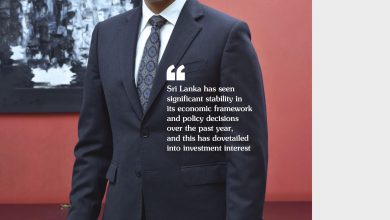1954
Ceylon Leads the Pack of Colombo Powers
Colombo Conference puts Asia on the map
There’s nothing like the solidarity of now sovereign nations who band together simply because they share a heritage of colonial oppression and attendant depredations. And thus it was that the so-called Colombo Powers met in the eponymous capital for their initial deliberations.
Though the five national attendees had all been under the yoke of colonising powers until recently in their respective histories, the confab was not limited to expressing anticolonial sentiment alone and safeguarding against future such eventualities.
On the contrary, India, Pakistan, Burma (now Myanmar), Indonesia and Ceylon met in the capital of the last named of these countries to discuss a host of other (albeit abstract) issues from the prerogatives of democracy to the conflicts in Asia such as that in Indochina.
As convenor of this pioneering summit, Ceylon placed a special emphasis on the dangers posed by the emerging phenomenon of communism, which threatened to polarise South and Southeast Asia, as well as nations beyond this sphere; and it asked for mutual, multilateral cooperation to address related issues.
On the other hand, India and Pakistan were constrained to tackle a bilateral concern – namely the hotly contested piece of shared real estate that redounded to the arbitrary nature of the partition that had divided the subcontinent with the stroke of a pen and riven its people to date… and Burma emphasised the importance of economically developing the region.
While Indonesia was not originally to be a participant at the Colombo summit of four other prime ministers, Ceylon’s premier Sir John Kotelawala revealed later, in his autobiography, that he was persuaded to include the former Dutch colony on the premise that its socioeconomic, political and cultural background was similar to that of the erstwhile colonies of the British Empire.
Arising out of Ceylon’s proposition that the attendant powers form a strategic mutual defence alliance, for the first time in the subcontinental sphere there was on the table a serious contender to serve as an alternative to the US’ Indian Ocean regional security doctrine.
The Colombo Conference also set the stage for a larger canopy of Afro-Asian nations to meet the next year in Bandung, which was to be another milestone in two continents’ shared postcolonial journeys.
As convenor of this pioneering summit, Ceylon placed a special emphasis on the dangers posed by the emerging phenomenon of communism, which threatened to polarise South and Southeast Asia






